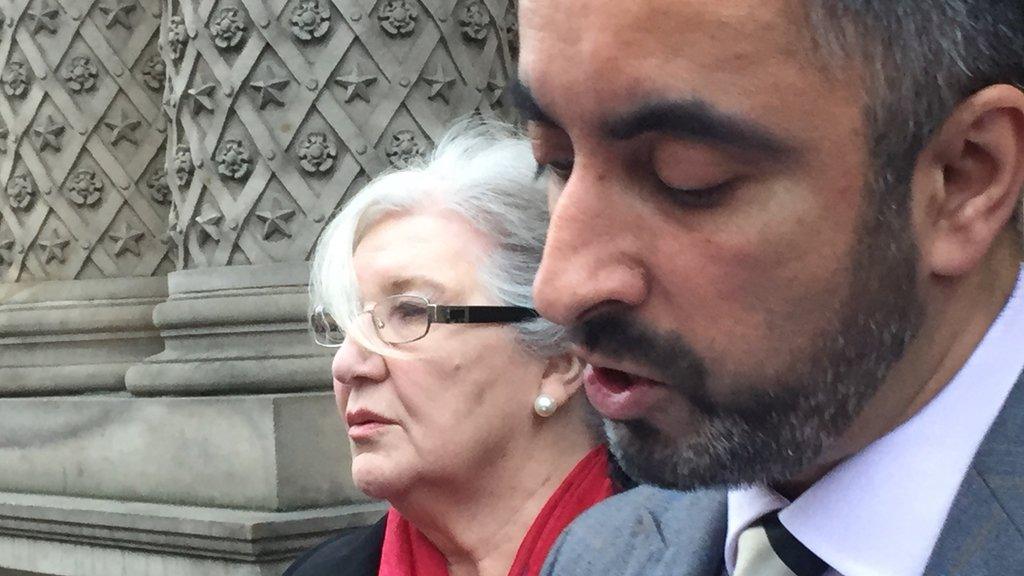Sister pleads: 'Let me bury my murdered brother Paul'
- Published
Amanda Digby said: "This grieving process has been like no other, it's just been horrendous from day one."
The sister of a murder victim said not being able to hold a funeral for her brother had been "five months of hell".
Paul Mathieson died in January, a week after he was attacked in Renfrew, but his body has still not been released to allow his family to arrange a funeral.
The situation is made worse by rules on post-mortem examinations which are particular to Scotland.
Paul's sister, Amanda Digby, has called for a change to the law to allow funerals to take place sooner.
Paul Mathieson, 37, was found with serious facial injuries in Wilson Street, Renfrew, on 14 January. He died in hospital six days later.
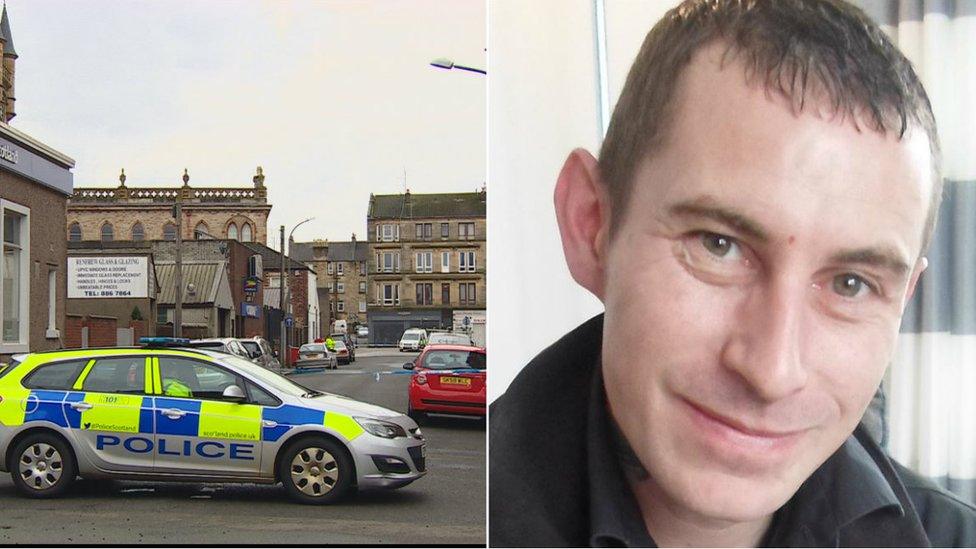
Paul Mathieson was attacked in Wilson Street as he walked home
His family waited until 29 May to see an arrest made in connection with Paul's death.
They were told early on that his body would not be released until this happened.
But they now face a further wait of up to nine weeks before they get Paul's body for a funeral.
In Scotland, a murder victim's body must be released by the procurator fiscal before any arrangements can take place.
Before this happens, time is given to an arrested person's defence lawyer to order a second post-mortem examination to be carried out.
In some cases this may result in the body being kept for a long period of time.
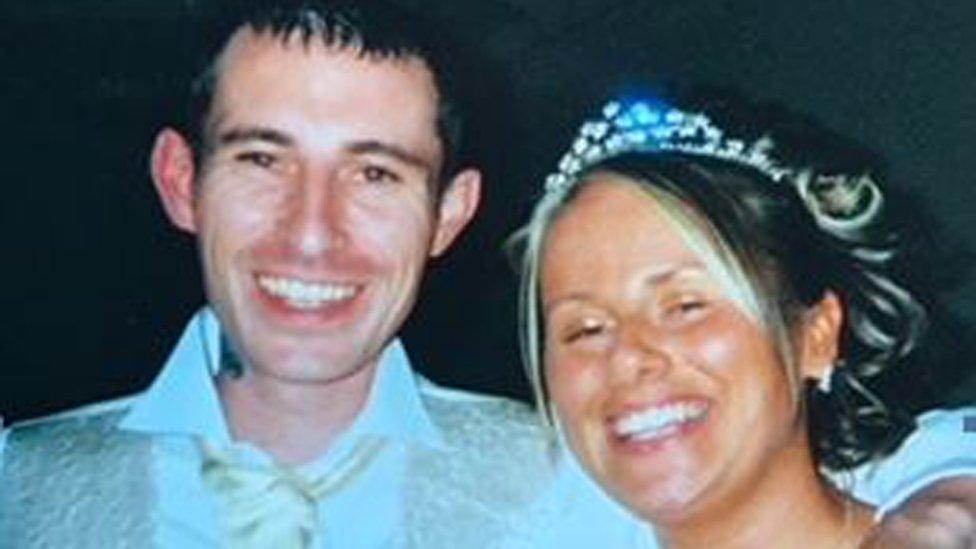
Paul Mathieson pictured with his sister, Amanda Digby
Amanda, 36, told BBC Scotland news: "It's been hellish if I am honest.
"It's horrible enough what's happened but I think having a funeral is your closure and you can start to move on once you've had the proceedings.
"But this has put a halt to that. There is still the dread of having that ahead of us. We still need to see the funeral through and it has stopped us from grieving and being able to move on."
Independent pathologist
Amanda wants Scotland to adopt a similar system to the one in place in England and Wales.
There, if no-one has been charged and the police do not expect to make an arrest within 28 days, the coroner will arrange for a second post-mortem to be carried out by an independent pathologist and the results stored.
Amanda said: "It's an issue you are not aware of until you are in that situation. I've been making people aware of it and they think it's not right.
"At the time we thought it sounded ok but as the weeks passed we thought this was barbaric.
"Why should people lie in a mortuary for five months when it could be so simple?"

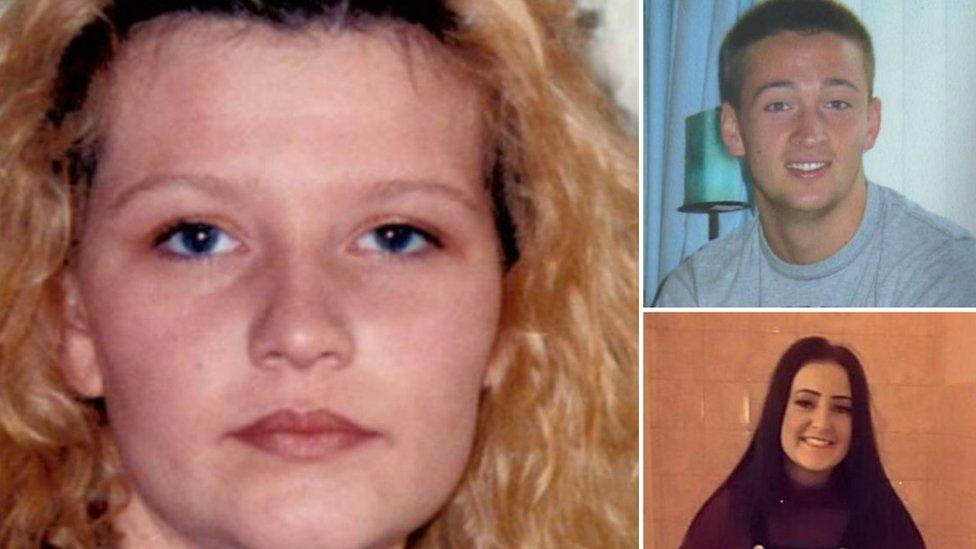
Emma Caldwell, Shaun Woodburn and Paige Doherty
High-profile murder cases where families faced a wait
Emma Caldwell: The funeral of Glasgow woman Emma Caldwell took place more than two years after her body was found, external in south Lanarkshire in 2005. Earlier that month four men had been arrested and charged, but were released several months later.
Paige Doherty: The 15-year-old was killed by deli owner John Leathem in Clydebank in March 2016. Her mother Pamela Munro spoke at the time of her sadness that Paige's body had deteriorated so badly she was unable to bring her daughter home before her funeral, which took place a month after her body was discovered.
Shaun Woodburn: Shaun Woodburn's parents called for changes after they were left waiting to bury the 30-year-old dad while two examinations were carried out. The junior footballer and architectural engineering graduate, died after he was punched outside an Edinburgh bar by Mohammed Ibnomer in the early hours of New Year's Day 2017. His father Kevin said "Why can we not have one post-mortem with a representatives from defence and prosecution?"

Forensic pathologists
The arrest of a man has not improved Amanda's situation.
"The defence team has to decide if it wants to do a second post-mortem and then Paul will be released," Amanda said.
"But for the decision to be made it can take a couple of weeks and then apparently we don't have any forensic pathologists in Scotland any more, they are based in England.
"Our pathologist retired last year. We need to get him [the pathologist from England] and his availability so it could take up to six weeks for a post-mortem and it could be still eight or nine weeks until we get to bury Paul."
'A necessary step'
A review of the Scottish system was ordered in February, when Justice Secretary Michael Matheson said it was "possible that improvements can be made".
He said legal officials were "currently working with forensic pathologists on a revised post-mortem examination protocol that may help reduce the number of further post-mortem examinations instructed by the defence."
The BBC has been told by the Crown Office, external that this review is in its first draft, with the Law Society of Scotland and Faculty of Advocates currently giving it consideration.
A Crown Office spokesman said: "A post-mortem examination is a necessary step in the investigation of a suspicious death. In law, the defence have a right to instruct a post-mortem examination on behalf on an accused person.
"We can confirm that COPFS is currently working with forensic pathologists on a revised post-mortem examination protocol that may reduce the number of post-mortem examinations instructed by the defence."
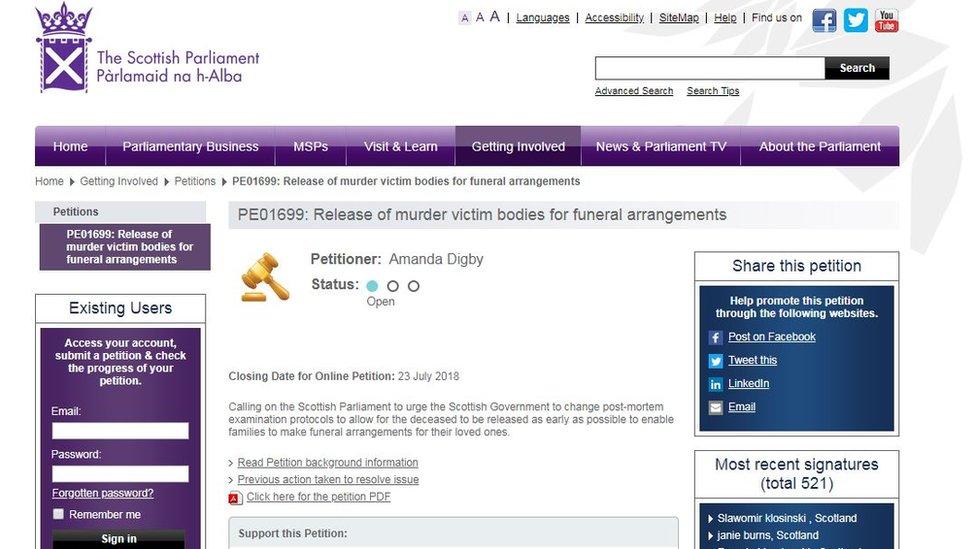
Amanda's petition is now live
In the meantime, Amanda has lodged a petition at the Scottish Parliament, external which she hopes to present to the petitions committee.
She said: "It's too late for us now but if it can change for other unfortunate families in the future it would be a comfort.
"Nobody ever sees themselves in this position. We certainly didn't.
"It is such a horrible situation we have found ourselves in and I want to do all I can to change it for other unfortunate families in the future."
Jamie Anderson, 36, from Paisley, was charged with murder at Paisley Sheriff Court on 30 May.
He made no plea and was remanded in custody.
- Published8 February 2018
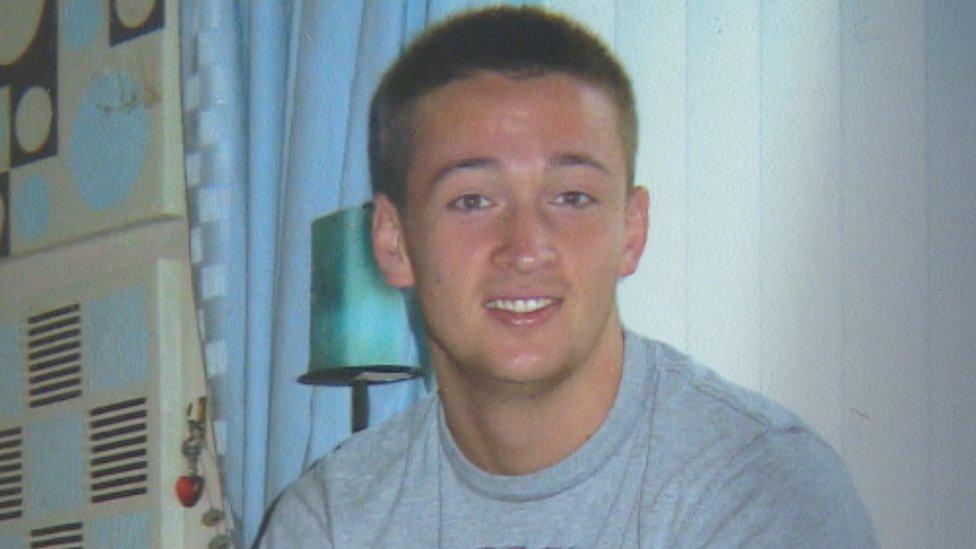
- Published20 April 2016
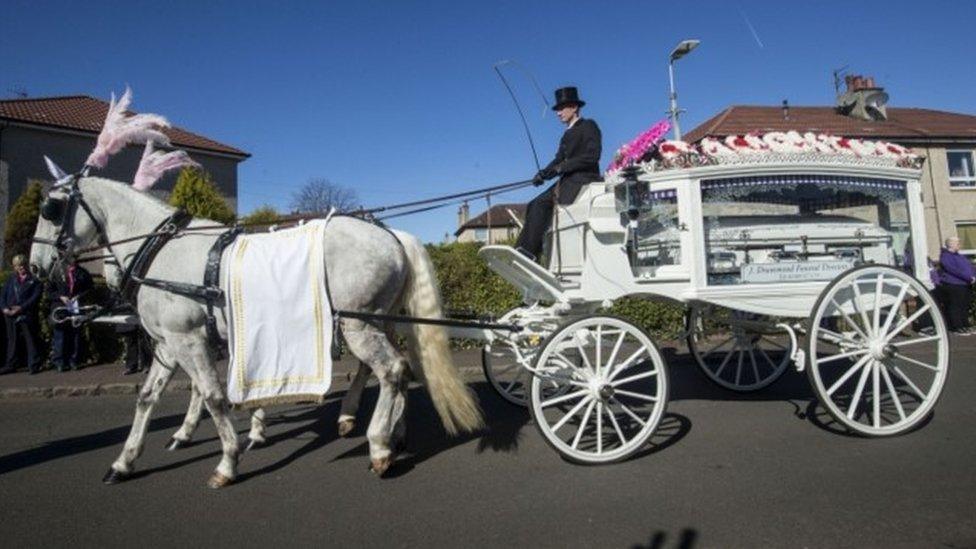
- Published2 February 2017
